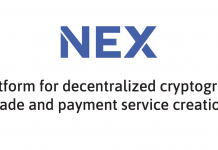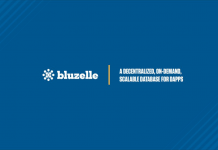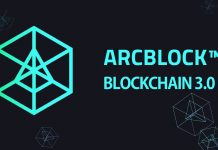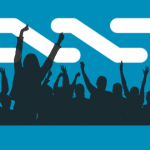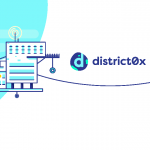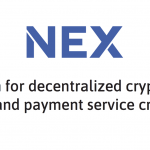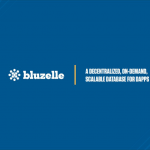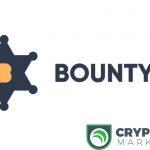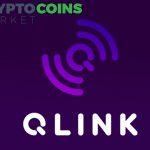Gladius is a CDN and DDoS mitigation service that uses blockchain technology, distributed mining pools and smart contracts.
Important dates:
Private Presale Date: Ends in 23rd November 2017.
Public Presale Date: 24th November 2017 to 30th Dec.
ICO Date: 14th January 2017
Overview.
Gladius is a fully decentralized, peer to peer, server less node network that will be used to connect bandwidth and storage pools to websites looking for DDoS protection and expedited content delivery. Distributed Denial of Service (DDoS) attacks are cyberattacks in which perpetrators render a website or other resource unavailable to its intended users by overloading it with superfluous requests sent from numerous devices simultaneously.
Anyone with a computer can download and run the Gladius peer client in the background to rent out their unused bandwidth and storage space and earn Gladius Tokens (GLA). Pools of nodes exist to group people into demographic groupings to provide a better and faster network experience. These pools can be seen and accessed through a marketplace where their information on geographical location, pool size, and reputation can be viewed. Using smart contracts, anyone can distribute their content and combat DDoS attacks.
Problems being solved:
- DDOs attacks on businesses. DDoS attacks have cost millions for household names like Blizzard Entertainment, the BBC, and GitHub. The average DDoS attack costs a company 2.5 million dollars.
- While the need for DDoS protection as a concept is excellent, the solutions available are not. DDoS protection is often very expensive and has varying degrees of success. The lack of a reliable and cheap solution creates a need for new players in the DDoS protection business.
- Numerous attacks to private industries and government databases in past years has increased the demand for proper protection from DDoS attacks.
- The “Internet of Things” has created many openings for potential attackers to abuse, these new and exploitable devices can easily give valuable information and create new targets for attacks from hackers.
- Slow site speeds and response times.
How it works.
Client nodes can be started up on any Linux, Windows, or MacOS machine and will automatically run in the background when you choose. Users will be part of localized verification pools. The client will verify the requests and send a response back to the pool if the request is valid, otherwise nothing will happen and the malicious request will never be routed to the destination. All of this work takes place on the user’s computer and is securely encrypted. Once the cycle is completed then the contract is completed and the node is awarded a portion of the Gladius Tokens.
To request DDoS protection, individuals and companies can go onto the web portal and add a new request for either a website or some other service they want to protect. This is then communicated with selected pools and activated in seconds through Ethereum smart contracts. Then all the user needs to do is change their DNS settings to the ones generated for them.
Users.
- Websites.
- Governments.
- Node pools.
Token uses.
- GLA will be used by websites to buy DDoS protection and CDN services.
- Node owners will be incentivized with GLA for sharing bandwidth and storage space.
Review/ICO Scoring Metrics.
- Concept.
Industry: Cyber Security/DDOS Protection/CDN.
Similar projects: None in blockchain for DDOS protection.
Existing companies: Cloudflare has a market cap of over $3.2 billion. Imperva/Incpsula’s cap is over $1.5 billion. Akamai’s is over $11 billion.
Level of competition: Little completion from blockchain projects.
How is it different from other projects in the space?
Gladius allows you to connect to protection pools near you to provide better protection and accelerate your content.
Divided Token: No
Market dynamics: Gladius estimates there have been 300,000 DDoS attacks this year, causing $150 billion in damages; The CDN market in 2015 was worth $4.95 billion dollars but is expected to more than triple by 2020 to a value of $15.73 billion dollars.
Use cases: DDOS protection, CDN
Scale of problems being addressed: Low
Regulatory risks: It’s incorporated in the US, so there are worries about high corporate tax; not a security token.
- Team.
More than 2 members with past experience in this industry: No
More than 2 members who are company CEOs/Founders: Yes
More than 2 members with technical experience: Yes
More than 2 members with previous blockchain experience or experience building an open source community or platform on a large scale: No
More than 2 notable advisors from other blockchain projects: Yes
More than 2 advisors with past experience in this industry: No
More than 2 advisors with technical experience: Yes
More than 2 advisors who are company CEOs/Founders: Yes
More than 2 advisors with previous blockchain experience or experience building an open source community or platform on a large scale: Yes
Popular advisors: Jeremy Epstein.
- MVP.
Any previous activity related to the project: The Gladius Team started in early 2017 as a University of Maryland College Park student team with a specialty in computer science, blockchain technology, and cybersecurity. Gladius’ founding members set off to research just how effective blockchain technology could be in the world of cyber security. After looking into the devastating power and sheer frequency of DDoS attacks along with the unsatisfactory market conditions, it was clear that the Ethereum blockchain could be the solution to these problems. Over the course of weeks and months, the team developed the core architecture that soon became the Gladius Network.
GitHub presence: Yes
Partners: Coinspeaker, Nexus, ITS Blockchain.
VC funding: Krypton capital,
Actual alpha, beta etc. available on website: Yes
Token expected usage date: Can be used now.
Working product: Available now.
Roadmap ends: December 2018.
- Blockchain leverages.
Smart contracts: Used to process payments from websites to pools to nodes; discovery and identification services; Joining a pool is initiated by a node with an Ethereum smart contract. The pool can deny this request if it believes the node would not be beneficial based on the user’s general demographic information such as location and available bandwidth and storage space.
Decentralization: They don’t use the blockchain to make DDOS decentralized. They use blockchain primarily as a communication, marketplace, and payment system. The actual protection and CDN works in a very similar way as traditional systems, with the added ability to have nodes anywhere on earth.
By having many relatively low bandwidth nodes spread over a large area, a potential client will be connected to a node that is extremely close to them. Instead of having a datacenter far away but with high capacity, a client will connect to someone with less capacity but very close.
Any centralization aspect: Yes. Pools can consist of only one individual’s or organization’s resources, allowing them to run their own instance of a Gladius pool by not approving outside nodes.
Scalability: Ethereum
DAO: No
Transparency: N/A
Database: The ethereum blockchain acts as a centralized database for storing the proxies and their associated service providers. There is a cost associated with being added to the database. The database will contain information about reputation, bandwidth, maximum cache size, and location. Having all of this information allows for websites to choose pools that would be best suited for their needs. For instance, websites could pay more for a very trusted pool that has many nodes close to their target audience
Oracles: None
Token scarcity: 96.3 Million GLA
- ICO Structure.
Popularity: High
Bitcoin talk pages: 13
Bitcoin talk interactiveness: Normal
Presale absent: NO
Whitelist absent: NO
Bonus for whales absent: NO. Private presale open to accredited investors only. Public presale bonuses based on contributed amounts.
No Registration required: NO. KYC verification, etc. required.
Individual cap: None
ICO Timeframe 1 month: N/A
Soft cap reached: ICO not started yet.
Token price: Cheapest price at public sale is $ 0.5; most expensive price is $0.6.
ICO Hard cap amount: 25M
ICO Token percentage: 70%
Limitations: None
Presale amount: Private presale is about 50% of hard cap. Public presale is about 35% of hard cap.
Presale amount reached: presale not over
Presale extended: Yes
Public sale progress so far: Not started
Public sale extended: Yes
Smart contracts already audited: Yes by Hosho Auditing services as well as SmartDec.
Escrow: N/A
Get the overall score of this ICO as well as other ICOs here



